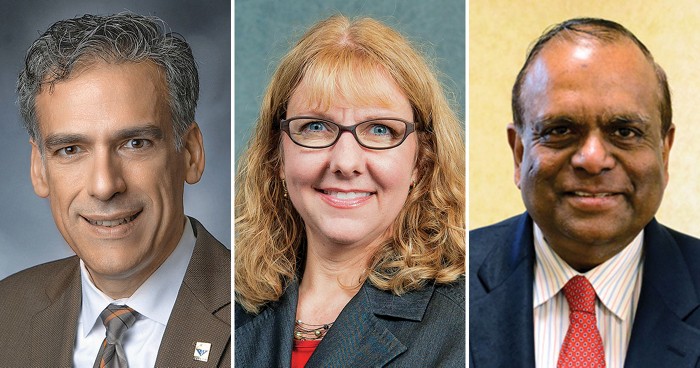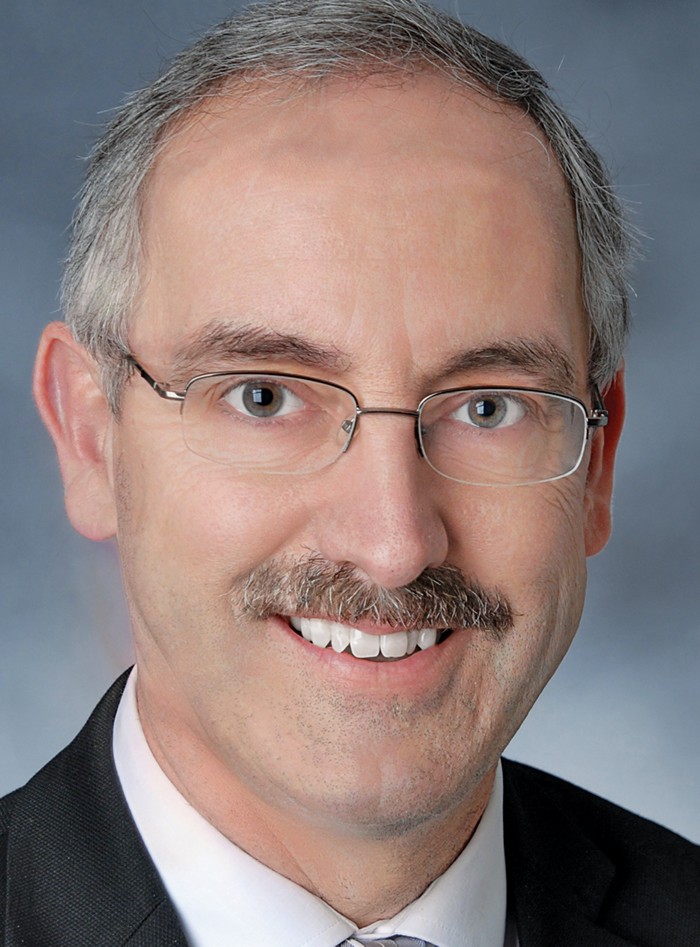Advertisement
Grab your lab coat. Let's get started
Welcome!
Welcome!
Create an account below to get 6 C&EN articles per month, receive newsletters and more - all free.
It seems this is your first time logging in online. Please enter the following information to continue.
As an ACS member you automatically get access to this site. All we need is few more details to create your reading experience.
Not you? Sign in with a different account.
Not you? Sign in with a different account.
ERROR 1
ERROR 1
ERROR 2
ERROR 2
ERROR 2
ERROR 2
ERROR 2
Password and Confirm password must match.
If you have an ACS member number, please enter it here so we can link this account to your membership. (optional)
ERROR 2
ACS values your privacy. By submitting your information, you are gaining access to C&EN and subscribing to our weekly newsletter. We use the information you provide to make your reading experience better, and we will never sell your data to third party members.
Elections
For District I director: Katherine L. Lee
September 7, 2018
| A version of this story appeared in
Volume 96, Issue 36

Northeastern Section. Pfizer, Cambridge, Mass.
Academic record: Yale University, B.S., summa cum laude, with distinction in chemistry, 1991; Massachusetts Institute of Technology, Ph.D., organic chemistry, 1996; University of Texas, Austin, postdoctoral fellow, 1996–98.
Honors: ACS Fellow, 2017; Invited Speaker, ACS MEDI First-Time Disclosures, 2016; Invited Speaker, Pfizer Research Grand Rounds (Pfizer internal recognition), 2016; ACS ChemLuminary Award for Best Industry Event, for NESACS Process Chemistry Symposium, 2015; Wyeth Research & Development Team of the Year Award, for cPLA2α Project Team (Wyeth internal recognition), 2001; Department of Defense, Office of Naval Research Predoctoral Fellowship, 1991–94.
Professional positions (for past 10 years): Pfizer, associate research fellow, 2011–, senior principal scientist II, medicinal chemistry, 2009–11; Wyeth, principal research scientist II, 2008–09, principal research scientist I, medicinal chemistry, 2004–08.
Service in ACS national offices: Committee on Economic & Professional Affairs, 2017–18, 2014, committee associate, 2013.
Service in ACS offices: Northeastern Section: councilor, 2016–18, 2012–14; immediate past chair, 2016; chair, 2015; chair-elect, 2014; Nominating Committee, chair, 2016; program chair, 2014; Board of Publications, 2016–; NESACS Process Chemistry Symposium Committee, 2014–; Host Local Section Committee, chair, 2010. Organic Chemistry Division: chair, 2018; chair-elect, 2017; member-at-large, 2011–16; Technical Achievements in Organic Chemistry Award Committee, chair, 2015, 2013; Summer Undergraduate Research Fellowship Committee, cochair, 2016, 2012–13.
Member: Member of ACS since 1992; ACS divisions: Medicinal Chemistry, Organic Chemistry.
Candidates will not be notified of comments left on this webpage. To contact this candidate directly, e-mail katherineleedistrictone@gmail.com.
Related activities: Healthcare Businesswomen’s Association, mentor, 2009–10; published 14 peer-reviewed journal articles; holds 15 patents or published patent applications.
Lee’s statement
I am honored to be a candidate for District I director and have the opportunity to share my vision for addressing the issues facing ACS.
Clearly communicate the value of ACS. Perhaps you joined ACS as I did, as a graduate student, and benefited from receiving discounts for journal subscriptions and books, reading C&EN each week, and attending ACS national meetings. Today, why should one maintain membership in ACS, and further, in ACS technical divisions and local sections? Indeed, we are grappling with the issue of declining membership in the Division of Organic Chemistry (DOC), for which I have served for several years as a member-at-large and in 2018 as the chair. I believe that the solution is generally not to do more but to better communicate, through our web presence and various forms of outreach, including social media, what we offer to ACS members as exclusive benefits. For example, we piloted a one-page DOC “brag sheet” and are continually working to better engage current and future DOC members. Let’s seize the opportunity to personalize ACS communications with members to better align information being shared with members’ interests.
Advance excellence in chemistry.ACS journals, SciFinder, and CAS are deservedly highly respected sources of scientific knowledge; I look forward, if elected as District I director, to directly interact with the leaders of ACS Publications and CAS. As a scientist, I have gained valuable experience from presenting at ACS national meetings and publishing papers in ACS journals. As a dedicated volunteer, I have enjoyed helping shape organized symposia for DOC technical sessions at ACS national meetings and being an active member of the Northeastern Section of the ACS (NESACS) Process Chemistry Symposium organizing committee, bringing together scientists from academia and industry for a daylong symposium in the Boston area each year. What is our future state in ACS? Can we do a better job educating the general public about the beauty and relevance of chemistry? What should the global impact of ACS be? Should we invest more in interactive virtual meetings and seminars?
Advertisement
Support ACS members in all stages of our careers. I am a medicinal chemist at Pfizer, and I lead a chemistry team on one project and an interdisciplinary team on another and am a member of the Inflammation & Immunology Medicinal Chemistry leadership team. I believe that ACS should be the go-to resource for chemists at all stages of education, career, and retirement. What might a career in chemistry look like nowadays? Can we make ACS resources for students, job seekers, and retirees more easily located and accessed? Are we thinking broadly enough about careers in chemistry? As a member of the Committee on Economic and Professional Affairs (CEPA) and a leader of NESACS and DOC, I have worked to advance the careers of chemists: For example, I organized and moderated a NESACS panel discussion to learn from chemists who have experienced corporate restructuring. We urgently need to do more for people who have undergone career changes, planned or unplanned. Getting hard data is the first step, and reaching out to our members to understand their needs is a key action I would like us to take.
Apply the resources of ACS wisely.Serving on the ACS Board of Directors brings about fiscal responsibilities in implementing the mission and vision of ACS. As the 2014 chair-elect and 2015 chair of the Northeastern Section, I gained firsthand experience in influencing decisions on our over $300,000 annual operating budget. Working with Michael Filosa, editor of “The Nucleus,” I gained approval from our board of directors to make our monthly newsletter go green, with an opt in required to receive a printed copy, leading to substantial savings in print costs and environmental impact. Likewise, I recognize that time and energy are resources that we should commit intentionally: Our ACS volunteers and staff must be confident that what we all are working on is clearly defined, not redundant, free from unnecessary processes, and relevant to our mission.
In closing, thank you for your consideration for the role of District I director. With your vote, I would bring fresh eyes to the role and experience in ACS as a local section and technical division leader, as a chemistry and project team leader in the pharmaceutical industry, and as a person who fosters clear communication and team engagement in her endeavors. Visit my website: katherineleedistrictone.blogspot.com.




Join the conversation
Contact the reporter
Submit a Letter to the Editor for publication
Engage with us on Twitter